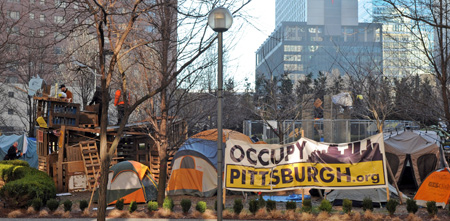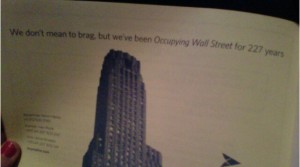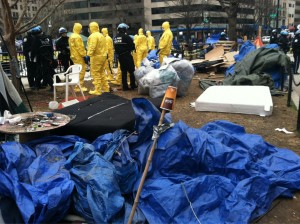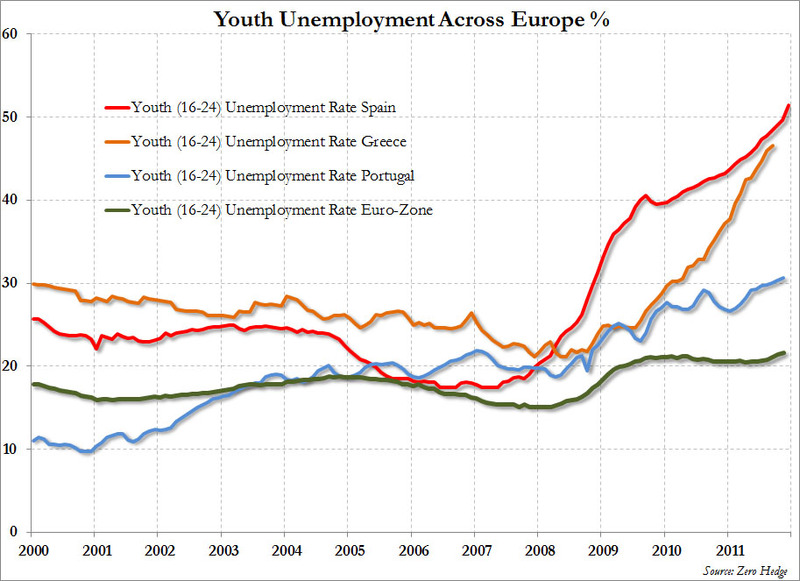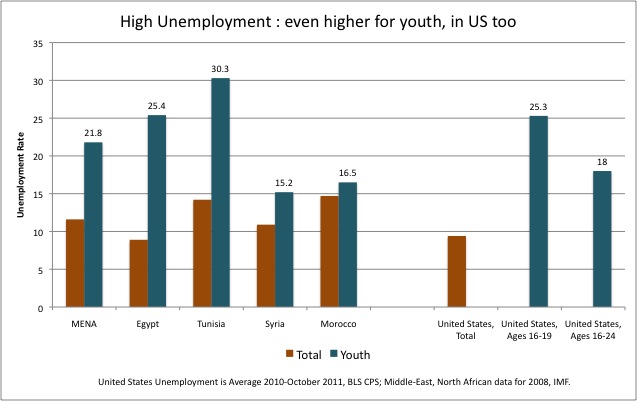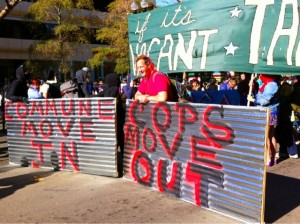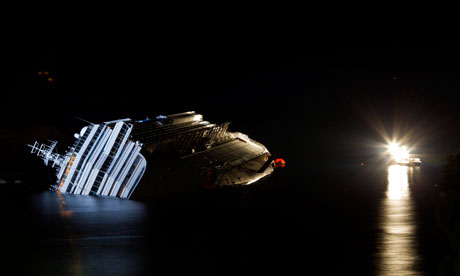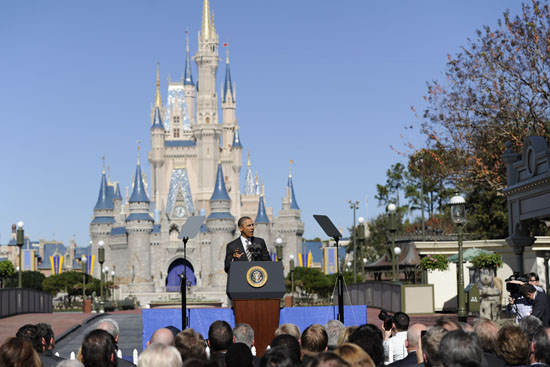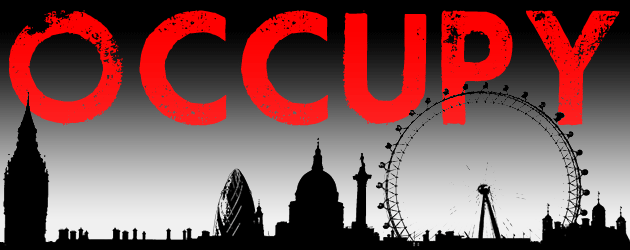In what has become a sorry tale of repetition with the closure of Occupy sites, today we had a first: an Occupy encampment shut down by direct order of a bank.
Since October 15, Occupy Pittsburgh has had a permanent presence in People’s Park formerly Mellon Park. The space is located downtown in front of BNY Mellon’s towering skyscraper, testament to its $25.9 trillion (yes, trillion) in assets. It is leased from the city on conditions that are in dispute. Investment bank BNY Mellon claims that it is a three season park, closed in the winter, and that they comply with the regulation that at least 20% of the space must be open at all times by making the sidewalk available. Clearly people in Pittsburgh treat the park as open space, as they were using it today for access and a place to smoke even though being there was legally trespassing.
For on February 2, BNY Mellon persuaded the usual compliant judge that they had the right to reclaim the space, remove all the structures and tents, and declare anyone present to be trespassing. That order went into effect today. Posted signs around the park announced that BNY Mellon had declared it illegal to set foot in the space. No mention was made of any other form of state authority.
Indeed BNY Mellon like to make fun of the whole Occupy thing, in the manner of London stockbrokers waving wedges of cash at Occupy London. Here’s their “hilarious” ad for the Financial Follies last year:
If you can’t read that, it says “We don’t mean to brag but we’ve been Occupying Wall Street for 227 years.”
So, perhaps it’s not so surprising that, unlike in New York or Oakland, there was an apparent reluctance on the part of law enforcement to get involved. Pittsburgh Occupiers I talked to today described how Pittsburgh police had helped them organize marches and had turned on their flashing lights to attract attention to the Occupiers. The reasons for this sympathy are obvious. I took the bus from the University area of Oakland where I’m staying to downtown. You pass one abandoned or derelict building after another with the only visible businesses being bars and gas stations, while the sole sign of life was outside a soup kitchen.
There’s a sense of absence throughout the city from the moment you arrive at the enormous airport, designed by US Air as a hub and now abandoned by them. People even lament losing the US Air call center where 50 people were employed, so tough is it to find a job. And then there are only 800 police in Pittsburgh, compared to the 30,000 in New York. I can’t move in New York without seeing the NYPD but I’ve been here two days without seeing the police although I spent all morning at Occupy.
This is still a steel town. BNY Mellon occupy a skyscraper once owned by the giant US Steel. The United Steel Workers union have an impressive building downtown that has been an important resource for Occupy Pittsburgh.
And then there are the nineteen steel bridges across the rivers here. From Occupy, I walked across the spectacular Seventh Street Bridge, now renamed the Andy Warhol Bridge, to visit the Andy Warhol Museum.
Outside, the streetscape is bleak and empty with no one passing by. Inside there’s lots of life and energy. I had Campbell’s Tomato Soup for lunch and thus fortified spent some time in the galleries. The Race Riot and Electric Chair series made it clear that Warhol was always aware of politics. The cold reality of the electric chair is difficult to confront even in a screen print. It was Empire that really caught my attention today, though.
I came into the screening of Warhol’s eight-hour film of the Empire State Building at a point where it was completely dark. The lights at the top of the building were the only point of illumination and they flared in the lens, giving the illusion of a fire. Thus Empire regards us. It would have us believe that it is a burning bush that never consumes itself but will scorch us should we try to touch, let alone extinguish it.
As I stood in the dark watching Empire burn, uncomfortable questions kept surfacing in my mind. Many of us in the humanities, very much including myself, are direct or indirect beneficiaries of the Mellon empire. Indeed, it seems that almost all new initiatives in the field are funded by the Mellon Foundation. In the face of today’s quasi-legal provocation what should we do? Move on, say nothing, and take the money because it is a repurposing of it for better things? Or try and use our place on the inside to somehow influence BNY Mellon? Or consider whether it might not be better to refuse to collaborate with them? What do you think?

